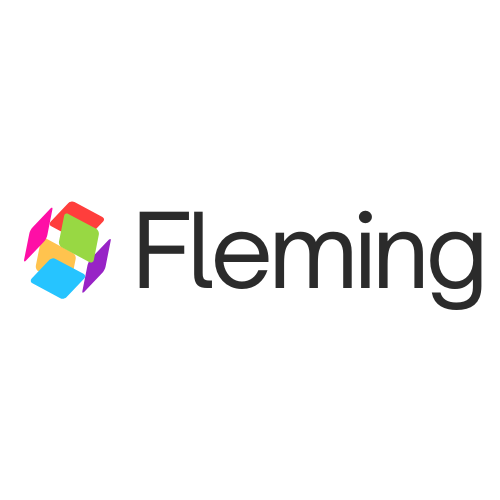build better relationships with physician partners
Much has been touted about “insights” - but when 50% or more data is potentially missing, there remain undoubted gaps in connections.
With the GENIUS platform, your Agentic AI Medical Science Liaison works for you 24/7.
Say hi to FLEMING™.
Meet FLEMING™ -
your super-intelligent Medical science liaison Assistant
Do you need to know your product’s hidden insights—at the clinical level—when you visit your physician partners?
Ask FLEMING™ — a private, enterprise-level natural language AI agent that connects to your data in seconds.
Paired with our intuitive “scientist-on-demand” data platform SOCRATES™, FLEMING™ makes it easy to access your clinical data so that pharma reps and physicians can make faster, smarter, patient-focused decisions.
Medical Liaisons and Reps can now allow FLEMING™ to record their meetings — where 50% of data is currently missing — and have that previously undiscovered data ready as insights into Veeva and Salesforce.
You can also ask it questions about your custom clinical data so that answers are readily available when you need them.
Imagine the possibilities because now the time is here.
GENIUS’ FLEMING™ is a true self-serve platform. A clean repository of domain knowledge.
Since FLEMING™ is trained on your entire product-specific domain knowledge, it gives you a higher degree of clinical intelligence and a distinct competitive advantage.
Best of all, it operates 24/7.
Calculate how your organization can benefit from FLEMING™
Regardless of staff reorganization, physician engagement needs to continue. FLEMING™ is your on-demand medical science liaison and works for your team through smart staff optimization based on geolocation and physician needs. Your team knows what to expect before ever going into meetings.

Pharma provider meetings
a deep dive into what’s going
-
The key to building relationships starts with connecting conversationally. Frankly, it’s disruptive to pull a laptop out and add notes in a meeting that usually is time-sensitive and requires intense focus. You’ll need to unblock the flow so that conversations between medical liaisons, reps, and physicians are aided with natural language processing.
"Insights" rely on the rep's recall ability (after the meeting) to record on a BI tool such as Veeva. A recall is usually 80% within an hour and declines exponentially thereafter. So, significant "insights" are missing - 50% or more data loss at the outset.
-
Several factors can impact the efficiency of memory recall. The percentage of memory retention after a meeting where information is presented can vary widely depending on numerous factors.
These can include the complexity of the information, the individual's attention level, emotional state, and prior knowledge of the topics discussed, among other factors.
That said, there is a general concept known as the “Forgetting Curve," proposed by Hermann Ebbinghaus, which suggests that memory retention decreases exponentially over time if there is no attempt to retain the information. According to the curve, people forget approximately 50-80% of new information within one day if they do not review it. The rate of forgetting slows down over time but continues to decline.
In the context of a meeting, consider the following factors:
Attention: Meetings often have a range of topics and distractions. If an attendee is not fully engaged, the retention rate can be quite low.
Complexity of Information: The more complex the information presented, the lower the retention rate may be, unless attendees are experts in the subject matter.
Repetition and Review: Opportunities to repeat and review material can significantly improve retention.
Application: If attendees immediately apply what they've learned, they're more likely to remember it later.
Follow-Up: Providing post-meeting summaries, key takeaways, or action items can aid in retention
-
They arise because the human brain is fundamentally a recreation engine, absorbing data from our senses and constructing a perception of reality rather than displaying a raw one. This neurological assembly is ongoing, meaning our memories are untrustworthy at first and downright dubious days, weeks, months, and years down the road.
How to Overcome memory recall issues
Given the above memory considerations, providing an exact percentage of memory retention post-meeting is challenging. However, it would not be surprising if individuals only retain a fraction of what was discussed, especially if they do not take steps to review or apply the information.
It's also worth noting that different people have different learning and memory capabilities. Some may have better innate abilities or more effective strategies for encoding and recalling information. Thus, their retention percentages may vary widely from the average.
FLEMING™ is designed to be like your team’s “second brain.”

Why GENIUS’ FLEMING™ is not a typical chatbot or off-the-shelf provider
it is where AGENTIC AI is headed
FLEMING™ combines a Natural Language Interface with a Reasoning Engine. Using an enterprise, private LLM with Cognitive Architecture from the start is critical for security and data privacy.
Polymorphic Applications and Mission-Oriented Programming (MOP) are two innovative approaches that harness the power of Generative AI to create software that can continuously evolve, learn, and expand its capabilities.
These are not just tools but active agents in pursuing their missions - by geo-location and at the time of physician demand.
What this means for your organization is that FLEMING™ is designed to improve, adapt, and optimize continuously and offers unprecedented levels of customization, intelligence, and efficiency.
FLEMING™ grows with your organization.

MSLs & reps who use FLEMING™ can more quickly create personalized engagement plans
Better-informed providers mean healthier patients.
Enable super-powered teams with FLEMING™.
-
Use on-demand “missing” data and insights based on vetted, high-quality sources as well as cross-function market access to prioritize and select accounts based on HCPs’ real-time requests.
-
Synthesizes and curates brand data and HCP-specic data.
-
Utilize real-time insights around HCP interactions to ensure seamless coordination and optimization of sales efforts.
-
MSLs can now review created materials to provide customized in-depth information to HCPs
Get Started
See how FLEMING™ can become a second brain for your organization’s medical liaisons and field reps. Get started now by filling out the form to get an evaluation.
You’ll learn how using our enterprise-level, private next-gen AI cognitive architecture—which evolves with your team and physician network’s needs—will truly improve patient healthcare outcomes.



